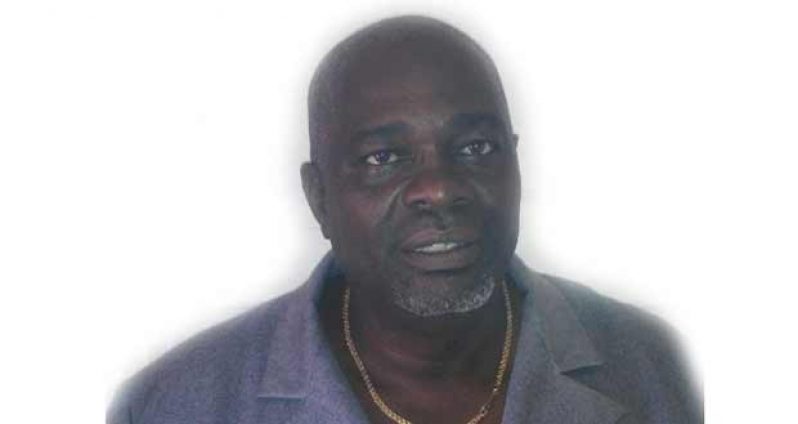THE Official List of Electors (OLE) is likely to be published by April 13, while the Revised List of Electors (RLE), following the end of the ongoing Claims and Objections period, could possibly be completed by March 16.This was disclosed at a news conference held yesterday at Cara Lodge, where the Chief Elections Officer (CEO), Keith Lowenfield, said, “We are moving to ensuring that all the processes, as the law prescribed are satisfied every step of the way.”
The Guyana Elections Commission (GECOM) official used what is the first news conference since the Commission went into “full election mode” to offer clarity on a number of issues.
According to him, the Representation of the People Act guides GECOM’s undertakings in the lead-up to the May 11 General and Regional Elections.
CLAIMS AND OBJECTIONS
Lowenfield explained that following the end of the seventh cycle of continuous registration, GECOM embarked on its mandatory Claims and Objections period, which comes to an end on February 27.
Some 6,003 persons took advantage of the Seventh Cycle of Registration, which ended on December 31, 2014. There were also 1,163 changes and corrections to existing registration information that were done during the Seventh Cycle of Continuous Registration, as well as 1,248 transfers.
Prior to the start of the Claims and Objections period, the Preliminary List of Electors (PLE) was published to allow for review by eligible voters.
The GECOM official told the media that the PLE lists some 567,125 eligible voters.
The PLE’s publication, as well as several other operational undertakings, had to be completed before a date for the Claims and Objections period was named, while the Claims and Objections period is necessary to finalise the Official List of Electors, which will facilitate voting on Elections Day.
The Chief Elections Officer explained that to date there have been 3,200 new registrants and 3,000 requests for transfers.
Once the Claims and Objections end, he noted that the Revised List of Electors will be posted and stakeholders will be given another 21 days to review it, before the OLE is finalised.
Up to the end of last week, GECOM reported that there had also been 550 changes and corrections to existing registration information, 477 replacements of identification cards requested, 139 retakes of photographs and 25 objections.
At the last General and Regional Elections in November 2011, the OLE listed some 492,193 eligible voters.
“Our operational posture throughout, including prior to the commencement of the Claims and Objections period, have not detracted from the laws in any way,” Lowenfield assured.
FULL ENGAGEMENT
He also stated that key stakeholders in the electoral process are fully involved in the work of the Commission. “All are involved and all are aware,” the CEO stressed.
Lowenfield pointed out that political parties, altogether, have some 1,600 scrutineers attached to GECOM, who work with the staff of the Commission on every aspect of preparing to host the elections.
“They are involved every step of the way…the Commission insists that political parties must be involved as far as practically possible in every aspect of our operations,” he said.
The GECOM official added that the Commission’s reach spans the entire Guyana, the entire voting spectrum, to ensure that every eligible voter is enfranchised.
“We will be at every location, across the spectrum…every location in Guyana that is populated…no Guyanese will be left out,” he said.
Lowenfield reiterated that these undertakings, the system and processes adopted by the Commission, remains within and complies with legal provisions.
“The law is clear,” he stressed.
The Chief Elections Officer assured that every effort is being made to ensure that the upcoming General and Regional election is reflective of a process that is free and fair.
EARLY ELECTIONS
The move to early elections resulted from the fact that the objectives of prorogation, in the face of a no-confidence motion against the Government and the consequent dissolution of Parliament, failed in the opinion of the current Administration.
Given the posture of the A Partnership for National Unity (APNU) and the Alliance For Change (AFC), President Ramotar has always maintained that the need for dialogue was uppermost in his mind when he made his decision to prorogue Parliament on November 10.
Paving the way for greater dialogue among political parties, he contended, would have kept the 10th Parliament alive to address critically important issues currently before the House.
The effect of ending the first session of the 10th Parliament by way of prorogation is the suspension of the business of the National Assembly. As a result of that move, the AFC-sponsored ‘No-Confidence’ Motion was not considered. Also, APNU had, prior to November 10, signalled its intention to support the Motion.
Since the prorogation, APNU and the AFC have made it clear that they will not engage the President in talks unless the prorogation is lifted, and parliamentary work resumes. The rejection of talks was also formally communicated by APNU Leader, Brigadier (rtd) David Granger in a December 2 letter, responding to the President’s November 18 invitation for talks.
President Ramotar had made it clear that if dialogue did not fructify, there would be a move to early general elections.
As a result, the Head of State early last December indicated that Guyana will head to early General and Regional Elections, just over three years since the November 2011 polls.
(By Vanessa Narine)



.jpg)








